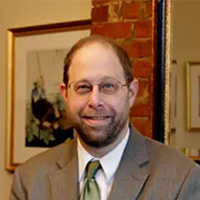Putnamville Felony Lawyer, Indiana
Sponsored Law Firm
-
 x
x

Click For More Info:
-
Sallee Law, LLC.
155 E. Market St. Suite 860 Indianapolis, IN 46204» view mapCriminal Defense Better Call Sallee
At Sallee Law, LLC, we believe in providing a true defense.
800-853-6180
Eric Krupp
✓ VERIFIEDCriminal, Felony
Eric Krupp completed his undergraduate education at Butler University with a B.A. in Telecommunications and a minor in Business Administration. He wa... (more)
Robert Hurley
✓ VERIFIEDCriminal, Traffic, Felony, Motor Vehicle
Mr. Hurley is a graduate of Indiana University Bloomington, and Ohio Northern University’s Claude Pettit College of Law, where he received B.A in Hi... (more)
 Eric Krupp Indianapolis, IN
Eric Krupp Indianapolis, IN Practice AreasExpertise
Practice AreasExpertise


